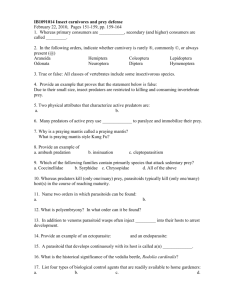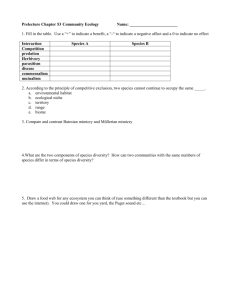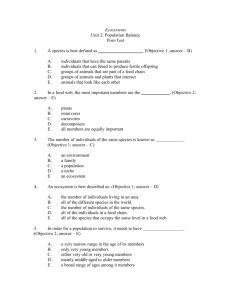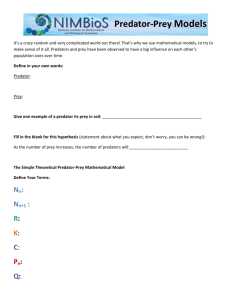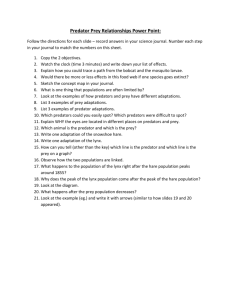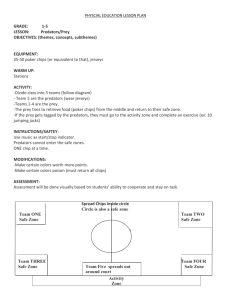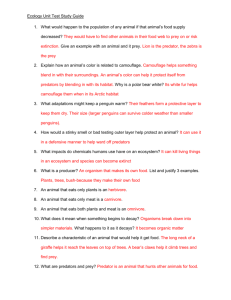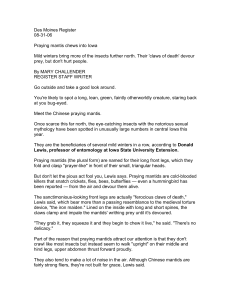Lecture 14
advertisement
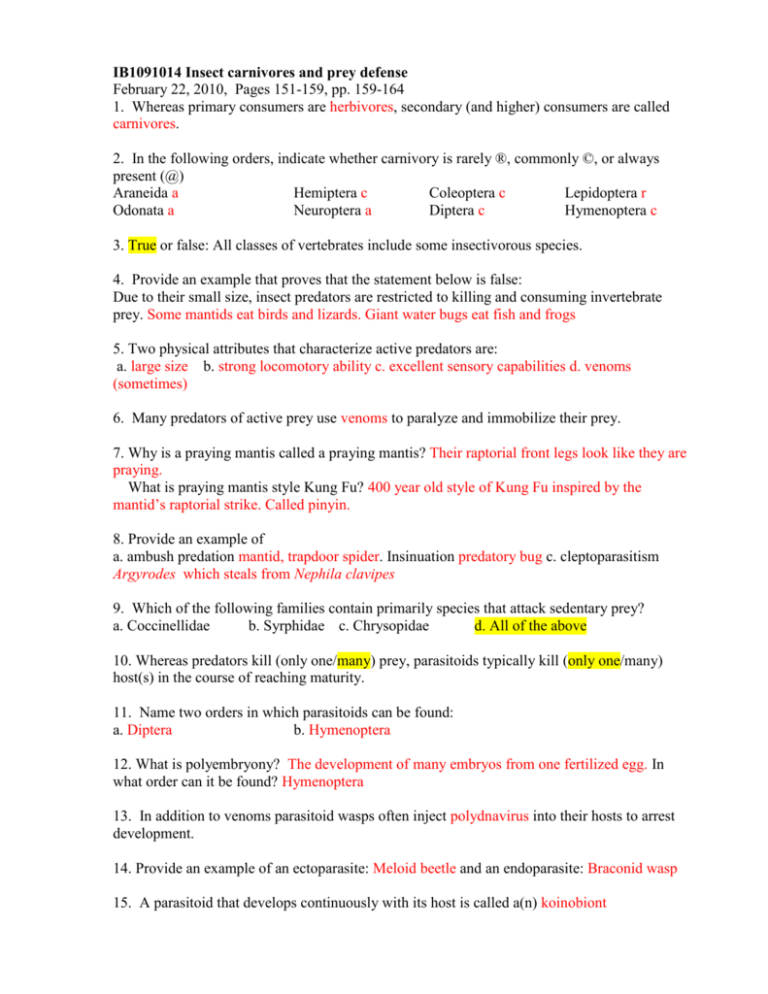
IB1091014 Insect carnivores and prey defense February 22, 2010, Pages 151-159, pp. 159-164 1. Whereas primary consumers are herbivores, secondary (and higher) consumers are called carnivores. 2. In the following orders, indicate whether carnivory is rarely ®, commonly ©, or always present (@) Araneida a Hemiptera c Coleoptera c Lepidoptera r Odonata a Neuroptera a Diptera c Hymenoptera c 3. True or false: All classes of vertebrates include some insectivorous species. 4. Provide an example that proves that the statement below is false: Due to their small size, insect predators are restricted to killing and consuming invertebrate prey. Some mantids eat birds and lizards. Giant water bugs eat fish and frogs 5. Two physical attributes that characterize active predators are: a. large size b. strong locomotory ability c. excellent sensory capabilities d. venoms (sometimes) 6. Many predators of active prey use venoms to paralyze and immobilize their prey. 7. Why is a praying mantis called a praying mantis? Their raptorial front legs look like they are praying. What is praying mantis style Kung Fu? 400 year old style of Kung Fu inspired by the mantid’s raptorial strike. Called pinyin. 8. Provide an example of a. ambush predation mantid, trapdoor spider. Insinuation predatory bug c. cleptoparasitism Argyrodes which steals from Nephila clavipes 9. Which of the following families contain primarily species that attack sedentary prey? a. Coccinellidae b. Syrphidae c. Chrysopidae d. All of the above 10. Whereas predators kill (only one/many) prey, parasitoids typically kill (only one/many) host(s) in the course of reaching maturity. 11. Name two orders in which parasitoids can be found: a. Diptera b. Hymenoptera 12. What is polyembryony? The development of many embryos from one fertilized egg. In what order can it be found? Hymenoptera 13. In addition to venoms parasitoid wasps often inject polydnavirus into their hosts to arrest development. 14. Provide an example of an ectoparasite: Meloid beetle and an endoparasite: Braconid wasp 15. A parasitoid that develops continuously with its host is called a(n) koinobiont 16. What is the historical significance of the vedalia beetle, Rodolia cardinalis? Introduced into California from Australia to control the cottony cushion scale by C.V. Riley. 17. List four types of biological control agents that are readily available to home gardeners: a. Lady Beetles b. Spider mites c. praying mantids d. lacewings 18. In what form(s) of biological control does the biocontrol agent NOT persist? a.inundative b. inoculative c. classical d. both a and b 19. Who is Harmonia axyridis and why was it brought to the United States? The multicolored asian lady-beetle, originally brought to control the pecan aphid. 20. Give an example of a nontarget impact of biological control by insects H. axyridis eats all kinds of soft bodied insects that are not pests. Give an example of a nontarget impact of biological control by vertebrates The cane toad was introduced into Australia to control greyback cane beetles and have become a incredibly invasive species.
